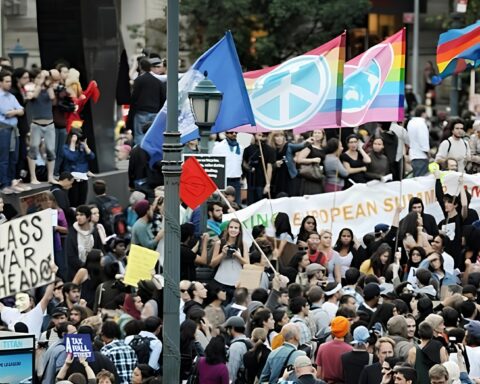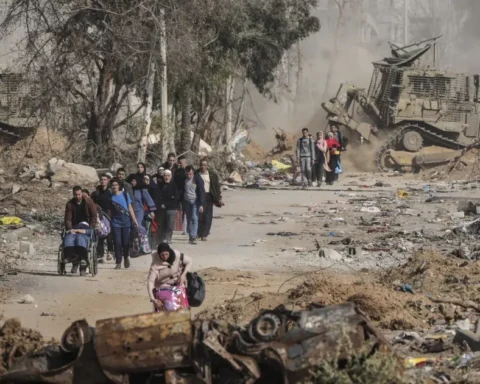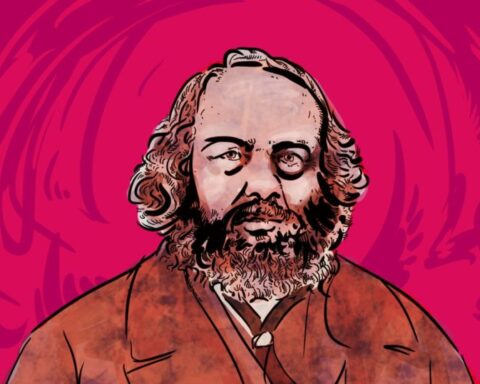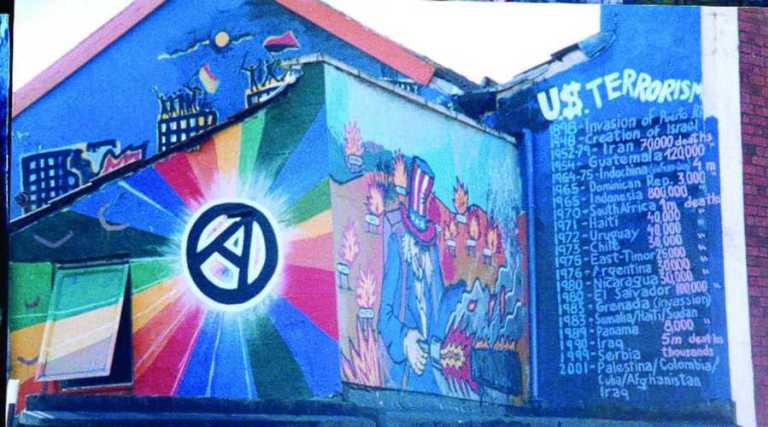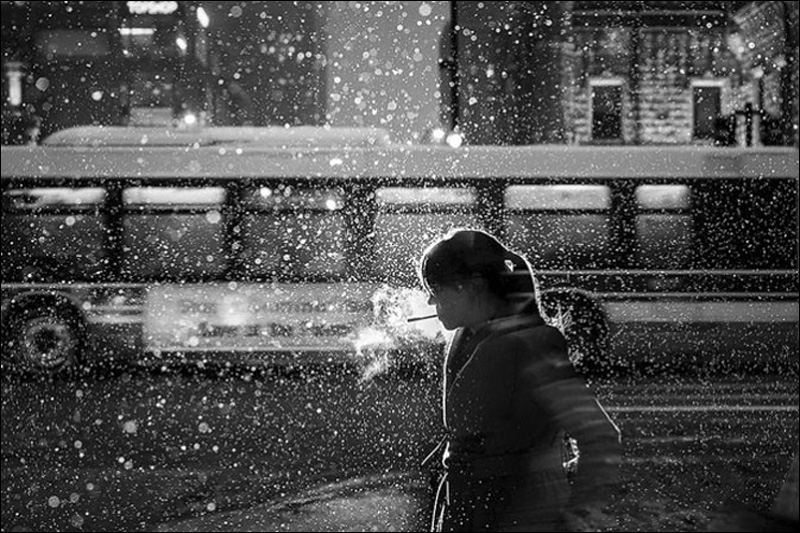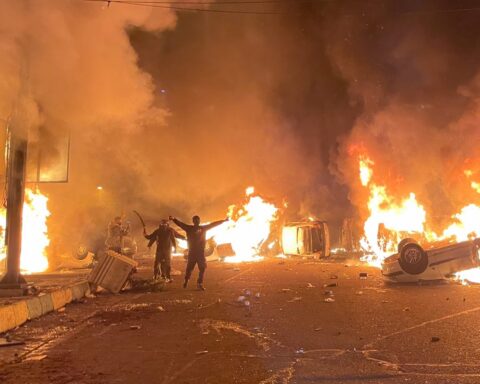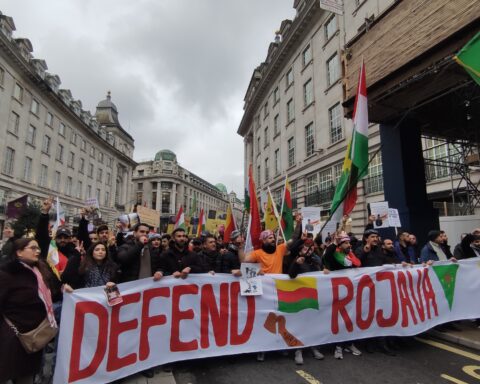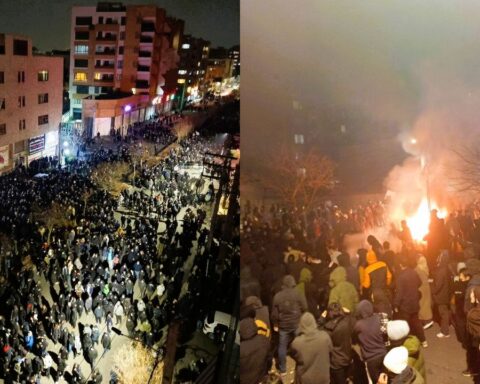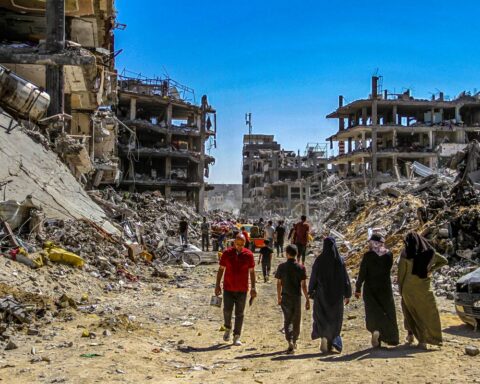MESSAGE from our PuertoRican comrade Frank Lopez:
Quick update about the situation in Puerto Rico for all of those who have asked. Spoke with my folks this AM, and well, shit’s bad, really bad. Hospitals will be the first to get power restored… in about 3 weeks! There’s long gasoline lines, and things are tense, as gas stations run out of gas. One man killed another when he was told that this had happened. Also food’s running low, as the island imports most of it’s food, and supply chains have been disrupted. There’s a curfew imposed and violent crime is on the rise. Some towns are unreachable by road. Only one radio station is able to broadcast (out of hundreds) and forget about TV. Mobile service is spotty as half of the cell phone towers are down.
One important thing to keep in mind is that Puerto Rico is a US Colony and has been for over a century. The US treats Puerto Ricans like they treat African Americans, Latinos, and Indigenous folks, so really, don’t expect Trump or the dems to fall over themselves to help the island with any great sense of urgency.
But with all that bad shit happening, the spirit of mutual aid prevails, and neighbors are getting to know and help each other. My peeps are extremely resilient, and I expect them to bounce back, from this and from the economic shit strorm that’s been raining down on them for over a decade. I hope that from these catastrophes, us boricuas learn to break from the endless cycle of dead end electoral politricks (the national sport) and re-discover the power we have within us to do for ourselves.
With that said, for those who want to help with $ DON’T GIVE TO THE RED CROSS – instead give to grassroots initiatives that will really use the money to rebuild. One example is Casa Taller Cangrejera in my neighborhood of Santurce, a volunteer run community and cultural space run by the rad artists from AgitArte who want to turn their space into a community hub for hurricane relief.
Message from Puerto Rico
Hiram Rivera Marcano
My attempt to quickly explain why Hurricane Maria devastated Puerto Rico and the Virgin Islands so bad:
To understand why Puerto Rico and the sister islands of the Caribbean have been so devastated by Hurricane Maria, we have to understand the history, politics and systems in place that allowed for this to happen in the first place. Environmental disasters are going to happen because that’s nature, but there’s nothing “natural” to just how devastating their impacts can be on the people, animals, communities they hit.
“Why should the U.S. be responsible for helping Puerto Rico?”
In 1898, the United States defeated the Spanish in the Spanish-American War, after the sinking of the USS Maine (believed to be caused internally) in Havana Harbor. As a result, Puerto Rico, Guam, and the Philippines become “property” of the U.S. with Cuba under temporary control. Puerto Rico officially becomes a colony of the United States.
Note: The Virgin Islands become U.S. colonies in 1917 after treaty ratifications with Denmark.
https://en.wikipedia.org/wiki/Spanish%E2%80%93American_War
“Aren’t Puerto Ricans (and the Virgin Islands) U.S. citizens , why doesn’t the president do more?”
Puerto Ricans are technically U.S. citizens, with all the assumed rights granted under the Constitution and Bill of Rights to all citizens of the country. As pre and post-civil war history has shown us, full citizenship only applies to white people. While having representatives in D.C., Puerto Ricans have no vote in presidential elections. Meaning, as citizens, they are subject to various forms of taxation but don’t get to have say in who is making all the decisions in the White House. Therefore, there is no political will for the president to do any more, or any less than what was done for the Black community of New Orleans during Katrina, because Puerto Ricans at best are second class citizens and not “real” Americans. But why would Puerto Rico sign up for this? It didn’t. Citizenship was imposed on Puerto Rico in 1917 under the Jones Act. Once legally “subject to the jurisdiction” of the U.S., Puerto Ricans were now able to be drafted into all U.S. fought wars since.
https://en.wikipedia.org/wiki/Puerto_Rican_citizenship
“Why haven’t other countries come to Puerto Rico’s aid?”
The Jones Act didn’t only impose citizenship on Puerto Ricans. Also known as the Merchant Marine Act of 1920, it is the law the U.S. passed to “regulate maritime commerce in U.S. waters and between U.S. ports.” Meaning, that all goods entering and leaving Puerto Rico must be transported on “U.S. flagged ships.” Vessels made and operated in the United States. The cost of these ships are astronomically more expensive than foreign vessels, but as a colony, Puerto Rico is forbidden from engaging in any trade with countries or receiving goods from foreign vessels. For an island so dependent on imported goods, they have no choice but to pay the massive fees charged by U.S shipping companies. A 2012 report found that “the policy translated into a $537 million hit to the island’s economy in 2010…” The Cabotage Law specifically, is one of the key contributing factors to Puerto Rico’s current economic crisis.
http://www.businessinsider.com/r-us-shippers-push-back-in-b…
“Why is it taking so long for me to hear from my family?!”
The basic formula for privatization under neo-liberalism is to intentionally disinvest and starve public sectors of needed resources, to drive them into ineffectiveness, and then sell them off to private investors who promise to improve the quality of service. We see this done in housing, schools, transportation services, health care, etc. For decades, private investors have been trying to gain control over Puerto Rico’s power and energy utility services. Austerity plans, or rigid economic policies put in place to supposedly alleviate the stresses of economic crisis’, are used in countries and cities all over the world to “justify” the selling off large chunks of the public sector (utilities, schools, transportation, etc.). They are anti-labor in nature and are set up to benefit bankers and major corporations looking for ways to extract profit out of sectors set up to provide the public with free and quality service.
As a result, Puerto Rico’s (and the Virgin Islands’) infrastructure has been allowed to degenerate to the point of barely adequate. So that when a storm of Maria’s size finally hit, there is little to nothing the electrical agencies can do, leaving at one time the entire island without power. Because Puerto Rico’s telephone system was privatized, there was no mandate for the company to maintain a high quality system able to deal with potential environmental disasters…so they didn’t. As a result, millions of families are left unable to contact relatives on the islands throughout the Caribbean. The house of cards, that is the Puerto Rican infrastructure now on full display, means the only support the people on all the impacted islands can depend on is the same U.S. military who first invaded the Caribbean back in 1898.
Note: The same maritime laws apply to the Virgin Islands.
https://nonprofitquarterly.org/…/privatization-puerto-rico…/
“This is bullshit, what do we do?!”
As the current president of the United States plays around on his Twitter, picking fights with North Korea and riling up his base around violent defenses of flags and anthems, we must not lose sight of the most important struggle at hand. The decolonization of the Caribbean. Capitalism survives through extraction. It sucks everything it can out of human beings and the environment until nothing is left but death. Millions of Black people and people of color live as colonial subjects no more than 4 hours away from New York City. Unable to build the infrastructure necessary to provide safety on islands who will be hit by hurricanes every year. Unable to build the international relationships needed to provide their people the goods and services they need, under terms that won’t drive them into economic desperation and dependency. We must fight like hell here, in the center of the colonizing country, to free our people from bondage that seeks only to displace them, turn their homes and legacies into hotels, and comodify their culture as was done to the Kingdom of Hawai’i. Our people deserve more than Apache helicopters and FEMA camps. The moment demands more of us.
http://abahlali.org/…/Frantz-Fanon-The-Wretched-of-the-Eart…

